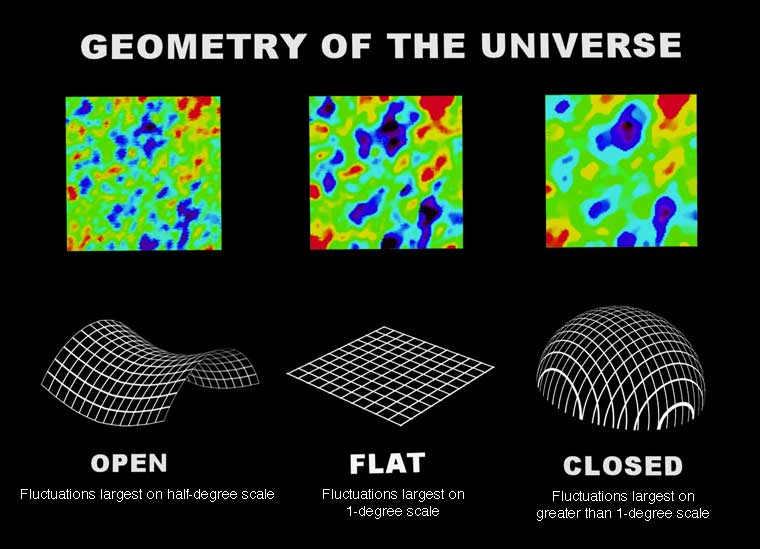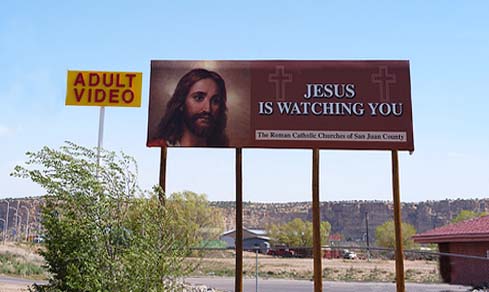In George Barna's latest book, "Future Cast", he says that Americans share these views about the Bible:
- 84% of Americans consider it Sacred.
- Less than 45% strongly believe that the Bible is totally accurate in all it teaches.
- 26% believe in a literal interpretation.
- 60% believe that the Bible is accurate and without error.
- 18% believe the Bible is Inspired, but that it contains some factual and historical errors.
So what IS the Bible? Is it the very Word of God? Is it merely a book written by men? Is it even historical? Is it somehow a guide for our lives?
I always challenge people who reject the Bible's spiritual authority to give an alternative explanation of its existence. I make this challenge because I find that most skeptics have never even thought about the question.
But much of what skeptics say about religion in general can be tested against the Bible. I've heard them say that religion exists for the following reasons:
- Wishful thinking
- Crutch for the weak-minded
- Social manipulation
Wishful Thinking
This idea is that people believe because they want to believe. Freud espoused this idea that we all had a psychological need for a father figure so we dreamed up the greatest father of all in God.
A great theme of this blog is formed in the simple question of "Why?". Why would we have such a need? Freud would appeal to evolutionary survival reasons. In a cruel world that sometimes forces us to our knees in order to survive, we want our "Daddy" to come and save us. It is comforting to think that there might be a Divine father who cares for our best interests and looks out for us.
Although I'm skeptical of evolution (I DO believe in natural selection. You can read about my beliefs on origins in this previous post), one does not have to be an evolutionist to believe in survival. I don't argue against wishful thinking projecting a belief in God. However, there is another way of looking at this truth that flips it on its head.
St. Augustine wrote about a God-shaped hole in our hearts. That hole is so large it can only be filled by God. He suggested that this hole was a longing in our hearts. It is one that can be connected to survival but transcends it. I see it in myself simply in longing to know and love someone greater than myself. I see it when I am enraptured in a love expressed via worship for Him.
What is more is that I have experienced that love as a recipient. Sure, you can try to argue this away as psychological projection.... perhaps it is but even so, it doesn't change what I have experienced and it certainly makes my life better.
In a world where there is no God, I'm not sure truth matters any more. If there is no God, than the chief goal of man is to have a good time, a good experience. After all, in such a world, man would be the highest being, seeking no one higher to serve. So if it feels good, do it. And if a belief yields a good experience, it would no longer matter whether or not it was true or a delusion.
I am NOT suggesting that I believe that I am living in such a delusion and asking skeptics to leave me alone. If there IS a God, this experience is based upon reality and reality is a slave master exacting its own demands...
So does the psychological need to believe prove that theism is a delusion or is the need to believe actually God-given? It is funny how life presents us truths that can always be looked at in two ways by reasonable, educated and wise people on both sides...
Augustine would suggest that this God-shaped hole has been placed in our hearts as a compass... a way that points to God. Make a note of this the next time life leaves you feeling like there has to be more.... Think about this when that last drink, sexual experience, accomplishment, or big ticket item purchase just isn't enough... And suffering is this truth's megaphone...
Crutch for the weak-minded
The crutch argument is wishful thinking extended to suffering and worry. We seek security even in the good times and a refuge in life's storms. What better rock can we look to than a divine one?
Like the wishful thinking argument, I would not deny the logic of this position... I would only question being dogmatic about its reality. Once again we see life presenting us with truth that can be interpreted in two ways. Does the need for a Divine refuge exist because we are self-deceived or is it a way for God to speak to us in the midst of our anxiety and suffering to say, "HERE I am"?
Does the need disqualify theism, or does God give us the need in the first place? I am convinced that such questions can never be answered within the circle of reason. Reason isn't a truth detector. It CAN be a lie detector but only if the lie is inconsistent with its presuppositions.
Reason simply tests the consistency and coherence of a belief. This idea is expressed in science in the form of objective positivism as demonstrated by the physicist Neils Bohr:
There is no quantum world. There is only an abstract physical description. It is wrong to think that the task of physics is to find out how nature is. Physics concerns what we can say about nature... - http://en.wikiquote.org/wiki/Niels_Bohr
In other words, it is one thing to test whether or not something is logically consistent but it is quite another to say whether or not a logically consistent argument is true.
This does not invalidate reason, it just shows us that reason is not enough. So what lies beyond reason to touch truth?
I have come to learn that profundity can be described as when a complex question surprises us with a simple answer. Love is the answer.
Love rends us objective. It removes the internal biases that taint our interpretations of life, leaving us selfless enough to see the truth even when it makes us uncomfortable. I would suggest that the crutch argument applies to both sides and that truth armed with love only threatens the skeptic's crutch... After all, doesn't the skeptic need the crutch of disbelief in order to sustain a life submissive to no one higher than the worship of self?
I am still trying to unravel all that this means and can write no more about this discovery except to challenge my reader to seek the truth in love...
Social manipulation
This argument says that religion was invented as a means for the tribe, monarchies and governments to manipulate the social behavior of the masses. Since the "arm of the law" is limited by police and military power, a divine power was conjured up who never sleeps, never tires and sees all even that which is done in secret.
I won't deny that many religions might exist because of this need. However, anyone who has read the new testament, will have a hard time reconciling this explanation to its content.
We repeatedly see in the New Testament this idea that man should obey God even over the law when there is a conflict.
27 And when they had brought them, they set them before the council. And the high priest asked them, 28 saying, “Did we not strictly command you not to teach in this name? And look, you have filled Jerusalem with your doctrine, and intend to bring this Man’s blood on us!” 29 But Peter and the other apostles answered and said: “We ought to obey God rather than men. - Acts 5:27-29Why would anyone wanting to conjure up Christianity for social manipulation purposes, write such a text?
Logic has found a lie...
Concluding Thoughts
In conclusion, I'll say that in regards to the Bible, I'm not going to go any farther... I have some deeper beliefs that I have learned to only share with people who are ready. I know when a person is at such a level by their level of questioning. In other words, I have a "if you don't ask, then I don't tell" policy regarding some of my deepest beliefs.
I see Jesus purposefully withholding truths from those who weren't ready. He seemed to determine this by the level of hunger as indicated by the presence or absence of questions from the potential seeker.
Besides, God doesn't reveal all. Instead, He puts Himself just out of reach as to give us a challenge, something to seek. Seek Him with all of your heart and the truth will come.









